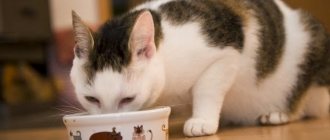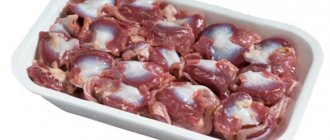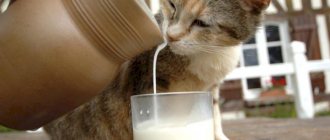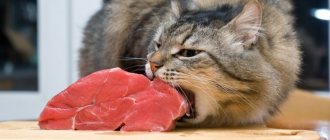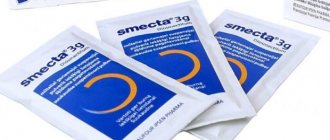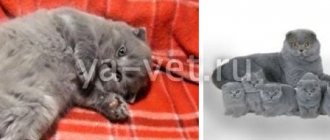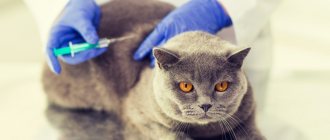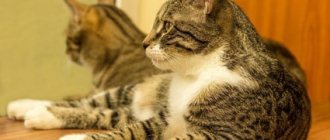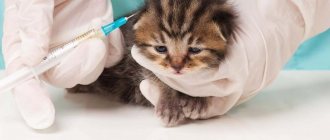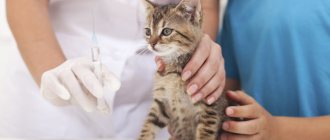When a new baby is brought into the house, a number of questions immediately arise: what to name him, where to arrange the toilet, what he will play with and where to sleep. But the first and most important question will always be - what to feed the kitten?
Kittens, aged 2 to 4 months, already need to have a complete diet. It should include not only proteins, fats and carbohydrates, but also vitamins and minerals. If you do not want to feed your pet balanced ready-made food, then you can develop a menu yourself.
Chicken has tender, nutritious meat that is easily digestible by the kitten. Poultry meat or minced meat made from it can become the basis of your pet’s diet. However, when feeding, you should take the necessary precautions to protect your pet from diseases.
You can prepare minced chicken for kittens with your own hands or buy ready-made. When making it yourself, you need to remember that the meat must first be frozen. This will prevent helminths from getting into the baby. It should also be taken into account that adding salt and spices to the minced meat is unacceptable. Likewise, when purchasing a finished product, you must carefully read the ingredients, and after purchasing, keep the minced meat in the freezer for at least a day.
For a kitten more than 4 months old, minced meat alone is not enough. It is necessary to add grains and vegetables to the diet. For feeding, you need to stir the food in equal proportions. It is also worth diversifying your pet’s diet and alternating minced chicken with meat or fish.
Feeding a kitten
When developing a diet for your pet, you should take into account not only his preferences. Food should not only nourish the body, but also benefit the animal. Under no circumstances should kittens be given fatty, fried or salty foods. Carefully monitor the composition of products and alternate ingredients.
It is also necessary to remember that future gastronomic preferences are formed precisely at the age of 2–4 months. If you teach a kitten to eat only fresh veal, it will be difficult to switch it to another food in the future. Follow these simple rules, and your pet will delight you for many years.
Tips for caring for cats, useful information on raising your pet, as well as other articles about cats.
Source
Raw meat: benefits and harms
Cats are carnivores, so natural meat products must be present in the cat's diet, even if the animal eats commercial food. Meat is a protein food that strengthens the immune system, promotes energy production, and can also be stored as adipose tissue. The benefits of meat food for cats are as follows:
- Amino acids. Meat is a source of essential substances that the cat’s body cannot synthesize - lysine, methionine, phenylalanine.
- Vitamins and microelements. Fresh meat products contain calcium, phosphorus, magnesium, choline, sulfur, vitamins B, A, PP, which are necessary for the normal functioning of all organs.
- Easy to digest. It is permissible to give only dietary varieties to cats, so meat is useful for cats with allergies.
- Cleaning teeth. If a cat eats meat on the bone, this helps get rid of tartar and the development of gingivitis in the future.
An excess of this product in a fluffy’s diet will contribute to his gaining excess weight.
However, if you feed your cat fresh meat constantly and in large quantities, the product causes harm to the body, such as:
- Lack of vitamins and microelements that are not contained in the meat product.
- The inability to track the quality of meat food, which can provoke bacterial or helminthic invasion.
- There is a large load on the liver, which causes organ dysfunction.
- Excess fat reserves lead to obesity, which negatively affects joints and the cardiovascular system.
Return to contents
Can kittens have minced chicken?
When a new baby is brought into the house, a number of questions immediately arise: what to name him, where to arrange the toilet, what he will play with and where to sleep.
But the first and most important question will always be - what to feed the kitten? Kittens, aged 2 to 4 months, already need to have a complete diet. It should include not only proteins, fats and carbohydrates, but also vitamins and minerals. If you do not want to feed your pet balanced ready-made food, then you can develop a menu yourself.
Chicken has tender, nutritious meat that is easily digestible by the kitten. Poultry meat or minced meat made from it can become the basis of your pet’s diet. However, when feeding, you should take the necessary precautions to protect your pet from diseases.
You can prepare minced chicken for kittens with your own hands or buy ready-made. When making it yourself, you need to remember that the meat must first be frozen. This will prevent helminths from getting into the baby. It should also be taken into account that adding salt and spices to the minced meat is unacceptable. Likewise, when purchasing a finished product, you must carefully read the ingredients, and after purchasing, keep the minced meat in the freezer for at least a day.
For a kitten more than 4 months old, minced meat alone is not enough. It is necessary to add grains and vegetables to the diet. For feeding, you need to stir the food in equal proportions. It is also worth diversifying your pet’s diet and alternating minced chicken with meat or fish.
Why is the raw product dangerous?
If you give your cat raw meat alone, the following problems may occur:
- Infection with helminths. These are roundworms, toxocara, flukes, trichinella, which cause serious organ dysfunction, even death.
- Hyperparathyroidism. Characterized by deformation and fracture of bones, neurological disorders.
- Bacterial infections. Often diagnosed are salmonellosis or colibacillosis, accompanied by diarrhea and general intoxication.
Return to contents
Can a kitten have mechanically separated chicken?
There are two types of minced meat preparation:
When preparing minced chicken by hand, all the soft parts of the carcass are processed - meat, skin, giblets. Due to the fat, the minced meat turns out to be quite liquid. During mechanical deboning, chicken carcasses are crushed almost entirely, only the heads and legs are excluded. The bones are not separated, but are crushed and ground together with the meat, forming a homogeneous mass. In this case, the minced meat is thicker and less fatty.
This minced chicken has more benefits for the cat's growing body. Phosphorus, calcium, potassium and other minerals that get into minced bones are easily digestible and do not cause a feeling of heaviness in the pet’s stomach. Minced chicken is an inexpensive product filled with natural vitamins. Therefore, to the question whether a kitten can have minced chicken mechanically separated, the answer is unequivocal - yes.
